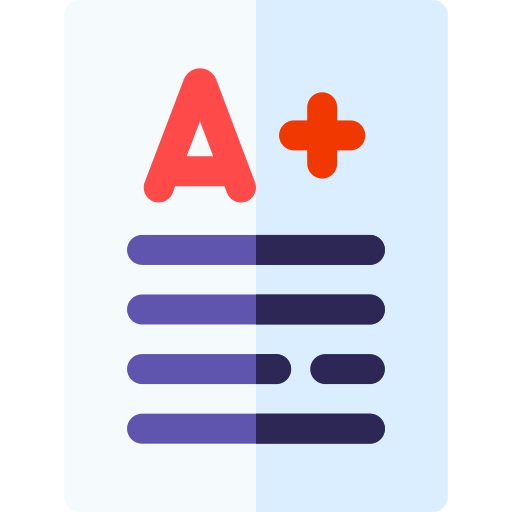كتاب الطالب 2020 2021 دراسات اجتماعية منهج إنجليزي صف عاشر فصل ثالث
Lesson 6 Observations
OBSERVATIONS AS A WAY TO COLLECT DATA
Interviewees may agree with the statement, "I always buy green apples." Yet, when they are faced with options, they may not buy green apples, particularly if the red ones look fresher or are cheaper. In observations, the researcher gets to describe situations as they exist
Observations are natural and allow the researcher to observe the participants in real-life situations to see what they do when faced with options. Observational research is non-experimental since the variables are neither controlled nor manipulated. Observations can be quantitative or qualitative based on how the observation is done. In a quantitative observation, the observer has compiled a checklist and is simply ticking a box whenever the observed behaviour is seen. In qualitative observation, the observer is open to receiving whatever appears in the observation. Observational research is used as a data collection method when the researcher is interested in seeing the participants engage in natural behaviour. Some examples of observational research include
studying and recording the behaviour of animals in their natural habitats
gathering more information about consumer habits by watching shoppers in a grocery store
understanding how young people make decisions by observing the interaction of students in a high school cafeteria
Lesson 7 Conducting Interviews
CONDUCTING INTERVIEWS
An interview can be described as a conversation used to gather information. Interviews can be conducted face to face, online or over the telephone and are a useful way to collect information on people's thoughts, feelings and attitudes
Interviews can be qualitative or quantitative data collection methods. Structured interviews are quantitative while semistructured and unstructured are qualitative. Face to face interviews allow accurate screening. Interviewers can verify information, such as age, gender, and ethic group. They also enable the interviewer to pick up non-verbal cues, which show feelings, such as discomfort or enthusiasm
Gathering non-verbal cues is particularly useful in a job interview, where the employer can accurately gauge the suitability of the candidate through additional information gained from non-verbal cues. Lastly, face to face interviews allow the interviewer to control the focus on the interview
CHARACTERISTICS OF A FOCUS GROUP
The collection of information from a focus group is based on the collective views, opinions, and experiences of a chosen group of participants. Understanding what is said and what is implied through non-verbal clues is an important part of focus groups. So, what are the main roles of the people within a focus group? How does a focus group differ from an interview
Who are the participants of a focus group
Usually, participants of a focus group are chosen for the common characteristics they share. In any one focus group, an ideal number of participants would be between 9 and 13 so that the group is not divided into equal sides in the interview as a larger group may confuse the researcher. In addition, trying to collect and analyse data may be complicated if too many peoples' opinions are involved
What is the atmosphere of a focus group
Unlike structured interviews, focus groups tend to be more relaxed and informal. Participants are encouraged to discuss and share their opinion on a central topic. Researchers have found that a round table is best for conducting a focus group, where participants can easily contribute to the conversation. The recording device should be placed in the middle of the table. Like in interviews, participants must be asked for their permission to be recorded. Unlike structured interviews, focus groups are intended to be a lighter setting for participants to enjoy an open discussion
What is the role of the researcher
Similar to a semi-structured interview, the researcher assumes the role of moderator, using pre-determined questions to guide the direction of the discussion. The moderator should make all participants comfortable and ease into the discussion with some general questions. After the participants are comfortable, then the interviewer can ask for more specific information with questions like, "Could you explain further?" or "Do you have an example of what you mean by that?" The interviewer says how much time the focus group discussion will take and make sure to finish within that amount of time
What about data collection
Since participants will be speaking at the same time, the researcher must use a reliable recording device to collect data. After the focus group, the researcher analyses the data from the focus group carefully and systematically. From this analysis, the researcher makes conclusions
Lesson 3&4
Read the case study
Philip loves to workout in his local gym, but he isn't sure if his gym is giving him the best value for money for his membership. Price is an important factor because he is still a student and works only part-time. However, Phillip doesn't mind paying for a yearly member ship if monthly payments are not available. He wants to have some other facilities at the gym, like somewhere to sit and take a rest after his workout. He is not a good swimmer, and he has recently taken up tennis. He would like classes in his favorite sports. He would like to practice a team sport and meet someone to play games with. He decides to create a survey and emails it to the gyms within a 10-kilometre radius of his house. Unfortunately, 2 of the gyms do not respond, but he receives data from the 4 gyms that send the completed surveys back to him. Philip decides to table the responses in order to compare the gyms and decide which one best meets his needs
Philip received the answers to his online survey, he tabled the information so that he can decide which gym he will join. Complete the steps
Analyse, evaluate the data, and choose which membership is best for Phillip
You need to justify your answer by showing how you evaluated the data
Prepare a short presentation to share your evaluation with your classmates, justifying the reasons why you chose the gym that you believe is the best for Phillip
SCIENTIFIC EXPERIMENTS
A scientific experiment is an organised and systematic set of steps that researchers follow to prove or disprove a theory that they have about a phenomenon in the natural world. Do you know of any scientists? What have they contributed to society through their research
The scientific method is a series of processes that researchers use to gather knowledge about an issue, improve it, and explain it. This method involves making observations, forming questions, making hypotheses, possibly doing an experiment, analysing the data, and forming a conclusion


